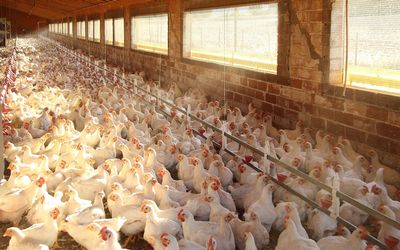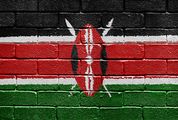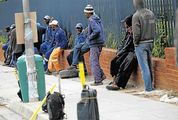Agbiz calls for Agoa negotiations to aim for balanced solution
by Carin Smith,
2016-01-06 15:08:51.0
IF SA loses its beneficial status in terms of the Africa Growth and Opportunities Act (Agoa), there will be some winners and some losers in the local agriculture and agribusiness industry, said Agricultural Business Chamber (Agbiz) CEO John Purchase.
Conflicting interests between different value chains in the broader agro-food system made it important for the Agoa negotiations to result in a good balance, he said on Wednesday.
Agoa has enabled duty-free, trade-access preferences for SA’s agricultural products. SA did, however, not meet a December 31 deadline to remove barriers on beef and chicken imports from the US, placing it at risk of losing these US trade preferences.
"If SA is kicked out of Agoa, the South African industries that would be the big losers would primarily be fruit (including juice), wine and nuts. The winners would be the South African poultry and pork industries," said Mr Purchase.
"Our position is clear: SA’s current Agoa negotiations must aim to bring about a balanced situation where the country’s duty-free access to the US for its fruit, wines and nuts are maintained, and where SA, in turn, allows certain imports of US broiler meat, pork and beef under certain and strict conditions, both from a tariff quota, sanitary and phyto-sanitary (SPS), and food safety point of view. The process is, however, now out of our hands," said Mr Purchase.
He added that the SA’s current situation regarding the Agoa process was complex and required a balancing act by government and agribusinesses.
"SA’s geopolitical positioning is, of course, adding to the complexity of the current Agoa trade negotiations and related issues. The geopolitical impact cannot be divorced from these types of negotiations," said Mr Purchase.
Agbiz represents about 80 companies and associations involved in various agro-food value chains, including fruit, nuts, wine, poultry, red meat and grains. It looks at cross-cutting issues that affect various industries and engages with government on policy and legislation as well as trade matters.
In September 2015 the Department of Trade and Industry invited Agbiz to provide some guidance and perspective as part of what Mr Purchase called "this very tricky" Agoa situation.
"We asked for a balanced situation, which was basically what the (department) and government adopted. We even called for partial equilibrium models to be run as some industries would win and some would lose," said Mr Purchase.
These are agro-economic models to determine what the benefits and losses would be in specific industries. The Bureau for Food and Agricultural Policy (BFAP) was asked to develop and run such models. Mr Purchase said the bureau came to the same conclusion as government on where one would have to settle in the negotiations.
Some sanitary and food safety issues regarding poultry imports from the US have since been resolved. Mr Purchase said that as far as he knew the only issue left related to SA’s concern about salmonella.
Fin24

Picture: THINKSTOCK
IF SA loses its beneficial status in terms of the Africa Growth and Opportunities Act (Agoa), there will be some winners and some losers in the local agriculture and agribusiness industry, said Agricultural Business Chamber (Agbiz) CEO John Purchase.
Conflicting interests between different value chains in the broader agro-food system made it important for the Agoa negotiations to result in a good balance, he said on Wednesday.
Agoa has enabled duty-free, trade-access preferences for SA’s agricultural products. SA did, however, not meet a December 31 deadline to remove barriers on beef and chicken imports from the US, placing it at risk of losing these US trade preferences.
"If SA is kicked out of Agoa, the South African industries that would be the big losers would primarily be fruit (including juice), wine and nuts. The winners would be the South African poultry and pork industries," said Mr Purchase.
"Our position is clear: SA’s current Agoa negotiations must aim to bring about a balanced situation where the country’s duty-free access to the US for its fruit, wines and nuts are maintained, and where SA, in turn, allows certain imports of US broiler meat, pork and beef under certain and strict conditions, both from a tariff quota, sanitary and phyto-sanitary (SPS), and food safety point of view. The process is, however, now out of our hands," said Mr Purchase.
He added that the SA’s current situation regarding the Agoa process was complex and required a balancing act by government and agribusinesses.
"SA’s geopolitical positioning is, of course, adding to the complexity of the current Agoa trade negotiations and related issues. The geopolitical impact cannot be divorced from these types of negotiations," said Mr Purchase.
Agbiz represents about 80 companies and associations involved in various agro-food value chains, including fruit, nuts, wine, poultry, red meat and grains. It looks at cross-cutting issues that affect various industries and engages with government on policy and legislation as well as trade matters.
In September 2015 the Department of Trade and Industry invited Agbiz to provide some guidance and perspective as part of what Mr Purchase called "this very tricky" Agoa situation.
"We asked for a balanced situation, which was basically what the (department) and government adopted. We even called for partial equilibrium models to be run as some industries would win and some would lose," said Mr Purchase.
These are agro-economic models to determine what the benefits and losses would be in specific industries. The Bureau for Food and Agricultural Policy (BFAP) was asked to develop and run such models. Mr Purchase said the bureau came to the same conclusion as government on where one would have to settle in the negotiations.
Some sanitary and food safety issues regarding poultry imports from the US have since been resolved. Mr Purchase said that as far as he knew the only issue left related to SA’s concern about salmonella.
Fin24






















Change: -2.10%
Change: -2.18%
Change: -2.60%
Change: -1.71%
Change: -2.86%
Data supplied by Profile Data
Change: 0.00%
Change: 0.00%
Change: -2.10%
Change: 0.00%
Change: 0.00%
Data supplied by Profile Data
Change: 0.03%
Change: -0.08%
Change: -0.15%
Change: -0.07%
Change: 0.00%
Data supplied by Profile Data
Change: 0.00%
Change: 0.00%
Change: 0.00%
Change: 0.00%
Change: 0.00%
Data supplied by Profile Data